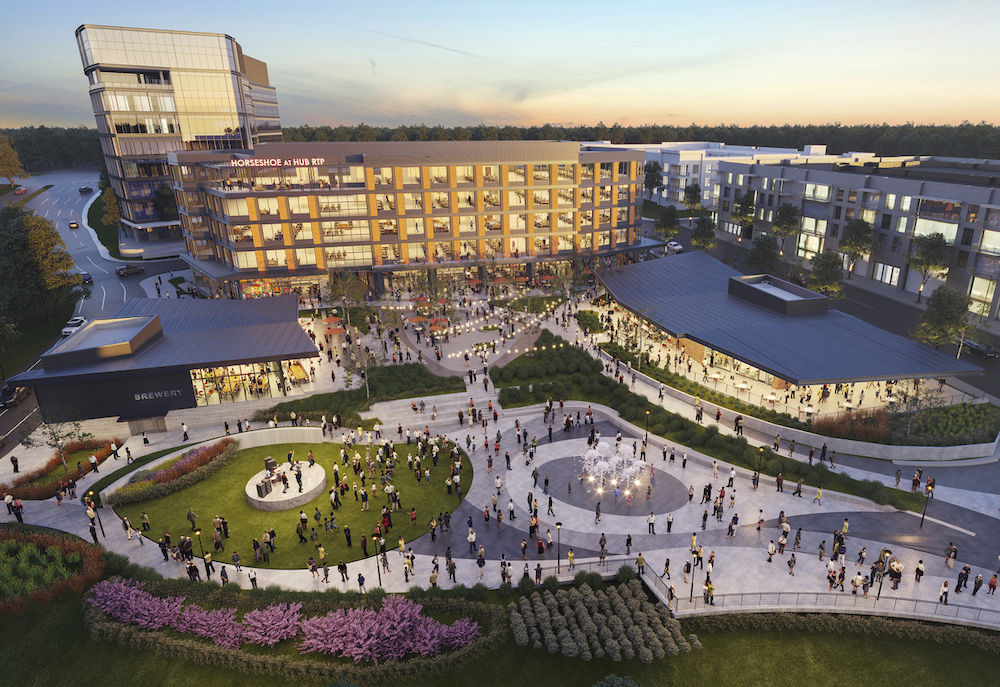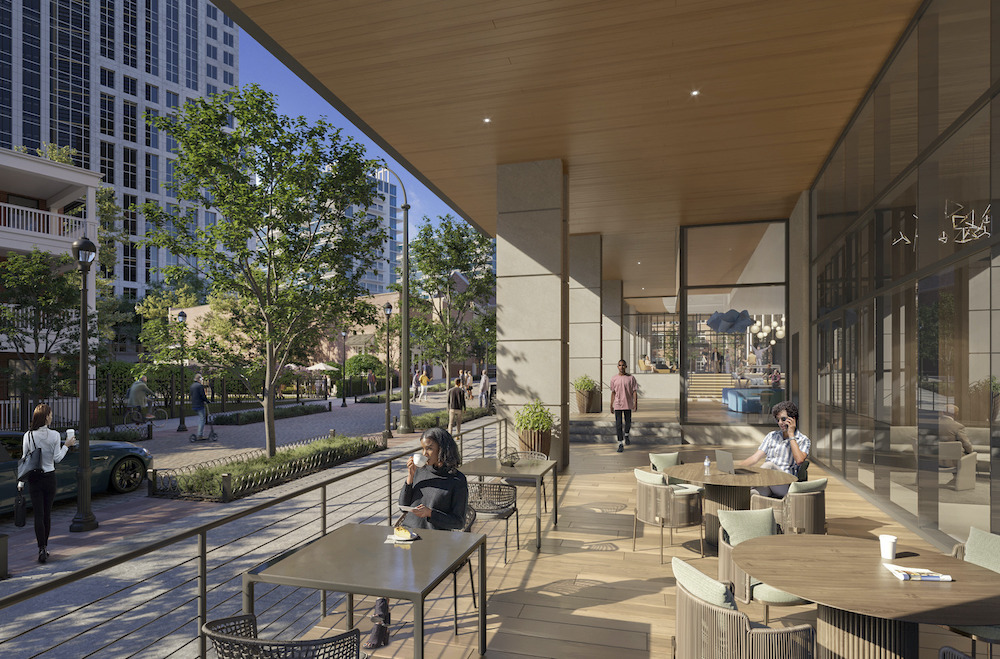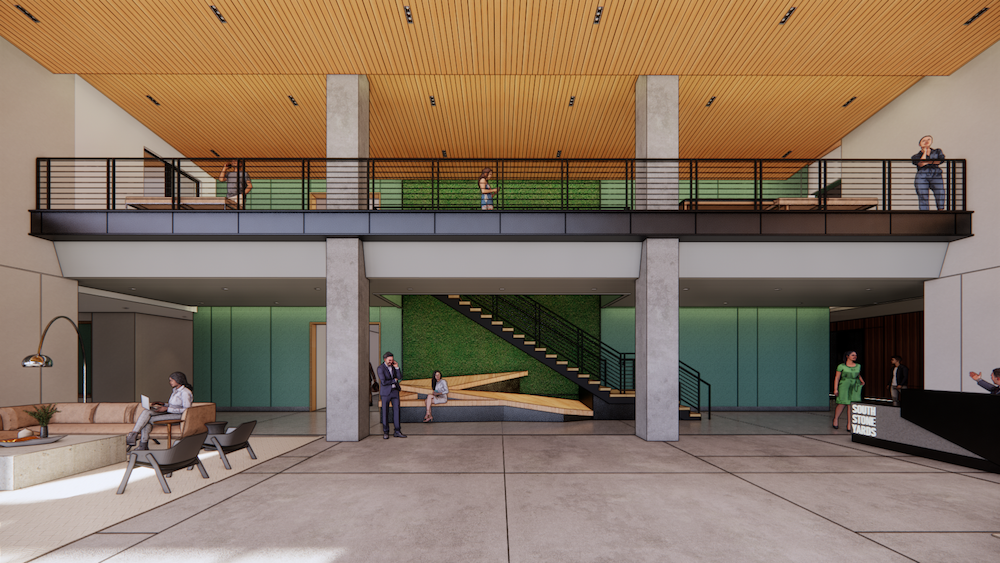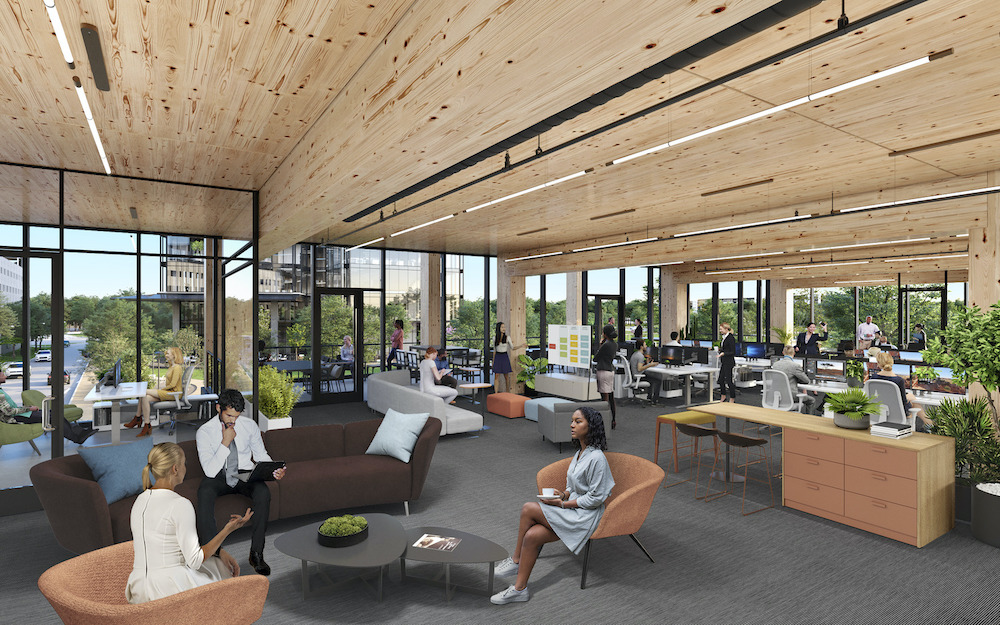Brendan Beachler, Sanjeev Patel, and Claire Zambrano of Duda|Paine share how to design offices that offer a healthy and happy work experience.

Creating a happy and healthy work environment is of paramount importance to employers, designers and architects who have witnessed employees’ uneasy transition to the office after months, or even years, of working from home.
When Microsoft asked what would motivate employees to return to the office, they got a resounding answer: social time with coworkers. According to the survey, 85 percent of employees would be motivated to go into the office if they could rebuild team bonds. Workplaces should allow employees to form crucial connections with colleagues, feel safe and supported, and share in the mission of their organization. The workplace is a physical representation of a company’s values and aspirations. A well-designed office environment demonstrates to an employee that their employer cares and prioritizes their comfort, health and well-being.

Improved Air Quality & Connections to Nature
Office environments should energize employees while they’re at work, and that energy should stay with them when their work ends. One way to feel reinvigorated is by spending time in nature. Thoughtful design can bring the benefits of fresh air and natural materials into the workplace.
Today, we are all more conscious of the benefits of fresh air and access to the outdoors throughout the workday. Upgrading a workspace’s mechanical and filtration systems, installing operable windows, and offering direct access to outdoor spaces can greatly improve employees’ ability to get fresh air. At Horseshoe in Hub RTP, in Research Triangle Park, North Carolina, the office building overlooks a central courtyard with a plaza, splash pad, event lawn and naturalized stream with landscaped pathways. The views and these amenities give employees a place to disconnect from their workspace and be in nature. Two outdoor terraces provide tenants direct access from their office to the outdoors.

Mass timber structures offer a renewable alternative to steel and concrete by sequestering CO2 and reducing the embodied carbon of the building. One square meter of cross-laminated timber can remove approximately one ton of greenhouse gas from the atmosphere. Mass timber buildings bring the health and productivity benefits of nature into the building itself. Southstone Yards in Frisco, Texas, will be the largest mass timber office in the US, with 20 percent more fresh air intake above LEED requirements, hospital-grade air filtration, and outdoor terraces on every level looking out to one of two new parks.
Comfortable Lighting & Acoustics
Office spaces should be designed for employees to be their best selves and do their best work, meaning spaces can’t be too dark, too hot or cold, or too noisy. Each of these qualities relates to one’s physical comfort. Ensuring optimal lighting, a comfortable thermal environment, and good sound control enables people to feel good and be productive.

Today’s workplaces can combine the best aspects of working from home with the features employees miss about going to the office. Adjustable controls for temperature, humidity and acoustics let individuals and teams personalize space. Similarly, a healthy office should offer a variety of workspaces from meeting areas to quiet zones, so people can select the spot that best suits a task. Stratus Midtown in Atlanta includes dedicated outdoor work and meeting areas with Wi-Fi, screen connections and shading.
Acoustical design should keep pace with the fluid spaces of today’s workplace. Open-plan offices are often a favored design choice to promote collaborative work and creativity, but unwanted noise can cause distractions. Plants, room dividers and partitions absorb sounds while adding texture and color. Creating separate rooms for noisy machinery, positioning desks in clusters throughout the office, and carefully arranging teams based on the nature of their daily activities can help control noise.

The lobby is a crucial space within any building. This active zone should foster a sense of awe as the building’s initial destination and point of departure. Placing an inspiring art piece in the lobby can elevate the experience as you enter and leave each day. Daylighting also plays an important role in the experience of walking out of a quiet elevator or away from a desk into an expansive and bright open space. At Southstone Yards, natural light and aesthetic finishes incentivize employees to use stairways. The lobby features a mass timber stair with a natural moss wall as a backdrop to elevate the experience of traveling floor to floor. To bring warmth into offices, floor-to-ceiling windows spread natural daylight inside, and exposed timber adds natural wood-grain ceilings and accents.

Amenities Enable Healthy Choices
Employers and designers who recognize the employee as a whole person—with a personal or family life, individual ambitions, and health goals—bring different thinking to office amenities and benefits. Opportunities for exercise, healthy dining options, and connections to the community are becoming essential factors when designing an office building or campus.
Many of our new buildings incorporate fitness centers for people to easily incorporate exercise into their daily routines. Other amenities include a coffee shop or wine bar incorporated into the lobby, game rooms or golf simulators, mothers’ and wellness rooms, bike storage, and walkability to public transportation. These additions to the workplace culture make employees feel comfortable and engaged, creating a positive experience overall.

At Stratus Midtown, ground-floor retail spills out to sidewalks and covered outdoor patios, enlivening the experience of being at work. Building tenants can visit the fourteenth level to enjoy the expansive sky lobby with a state-of-the-art fitness center and shared conference space—all with access to a landscaped outdoor terrace. At Southstone Yards, three acres of community park offer diverse programming, with a hike-and-bike trail, food trucks and additional restaurants planned in the central park. An inviting lounge-like space, known as the library, means occupants can unwind or gather for events. These amenities and outdoor spaces improve health and wellness for building users, allow for flexible workplace options, and promote a sense of community, contributing to a healthy and happy work experience.


